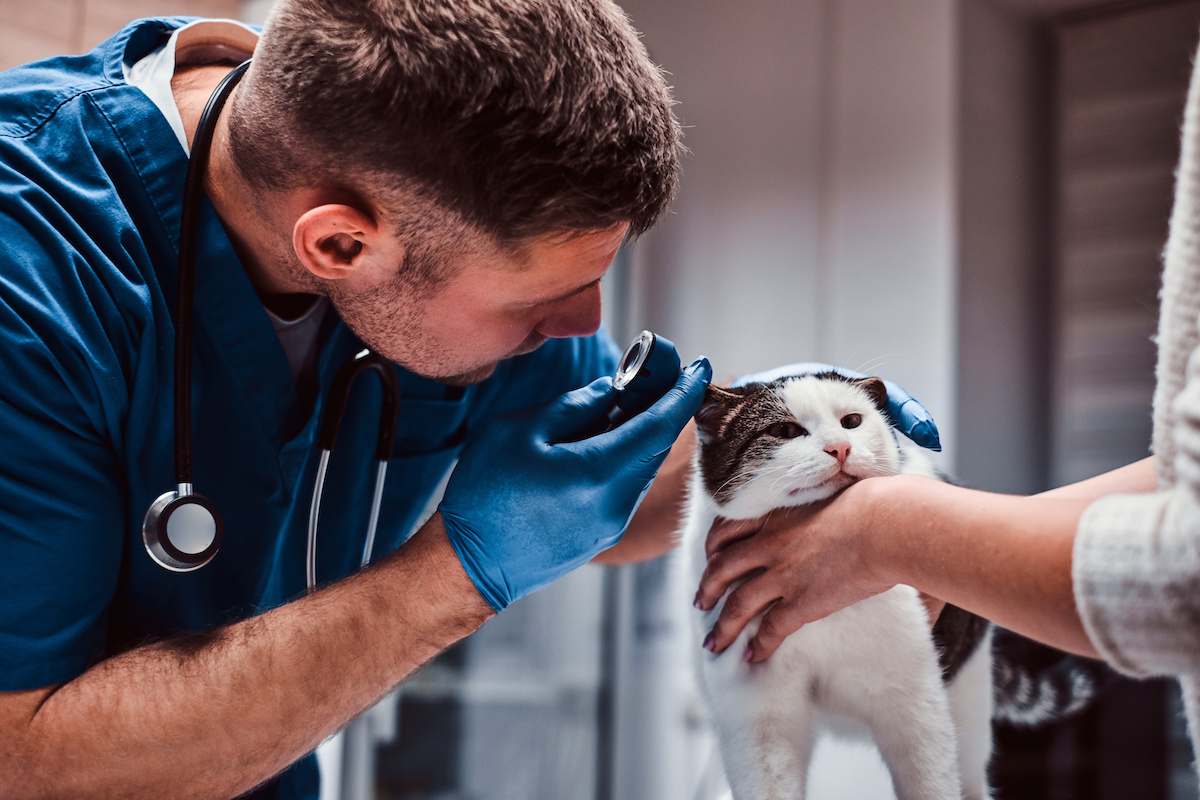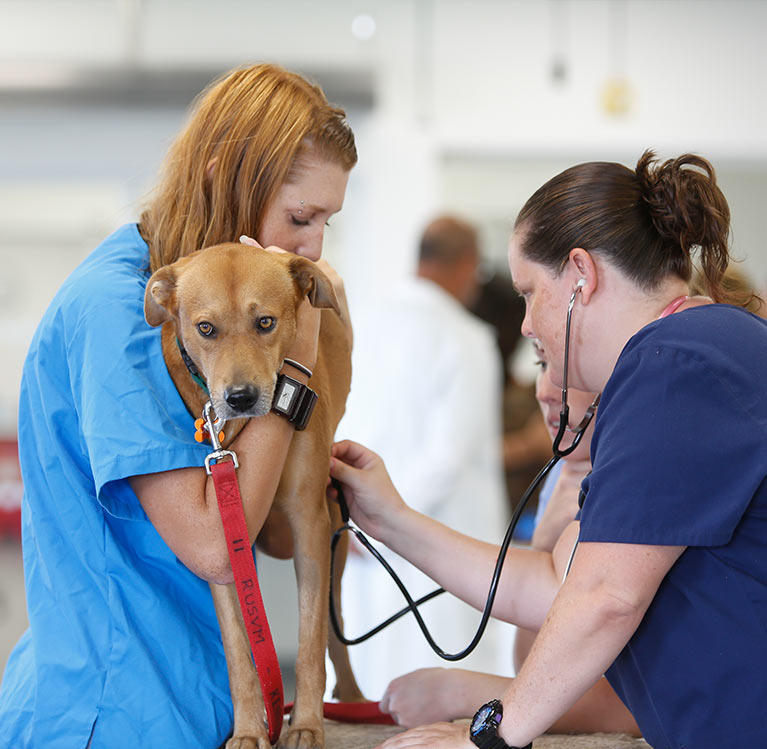Vaccination Standards From Your Relied On Vet
Vaccination standards offered by your trusted vet play a critical function in protecting your pet dog's health and wellness and wellness. Additionally, dealing with usual misconceptions bordering injections can additionally improve pet owners' confidence in these preventative actions.

Relevance of Vaccinations
Inoculations play a crucial function in guarding pets against a variety of avoidable conditions. By stimulating the body immune system to acknowledge and combat certain virus, vaccinations dramatically decrease the occurrence of transmittable diseases that can impact an animal's health and wellness and long life. Not just do inoculations shield specific pets, yet they likewise add to herd immunity, thereby decreasing the total frequency of illness in the family pet population.
Timely inoculations assist to minimize the spread of diseases such as rabies, parvovirus, and distemper, which can have severe consequences for both pet dogs and people. Vaccinations are often a need for boarding centers, brushing services, and dog parks, making them crucial for those that wish to mingle their pet dogs.

Core Injections for Pets
While the certain vaccination demands of pets can differ based upon private elements, core vaccines are widely recommended to shield against one of the most usual and serious diseases (Emergency Vet). Core vaccinations are those deemed essential for all family pets, no matter of their lifestyle or geographical place, as they guard against highly infectious and possibly deadly ailments
For canines, the core vaccinations consist of those for canine distemper, parvovirus, adenovirus (hepatitis), and rabies. Canine distemper is a viral condition that influences the respiratory, gastrointestinal, and nerve systems. Parvovirus is known for creating extreme gastrointestinal disease, especially in pups. Adenovirus can result in liver illness, while rabies is a zoonotic disease that poses a danger to both people and pets.
In pet cats, core injections incorporate feline panleukopenia, feline calicivirus, feline herpesvirus (rhinotracheitis), and rabies. Feline panleukopenia is an extremely infectious viral condition that affects the immune system and intestinal tracts. Calicivirus and herpesvirus are major contributors to upper respiratory infections in felines, while rabies continues to be an essential issue for public health and wellness.
Speak with your veterinarian to ensure your pets get their core vaccinations on schedule.
Non-Core Vaccines Explained
Non-core injections are customized to address details dangers connected with a pet dog's setting, exposure, and way of life to certain illness. Unlike core vaccinations, which are universally recommended for all family pets, non-core injections are taken into consideration based upon individual conditions. These vaccinations are especially essential for family pets that may encounter unique virus due to their geographical place, traveling behaviors, or activities.
Instances of non-core injections include those for Bordetella bronchiseptica, which is connected to kennel coughing, and Lyme condition, triggered by ticks. Family pets that regularly communicate with other pets, such as those in boarding facilities, pet dog parks, or grooming environments, may benefit from Bordetella vaccination. If you live in a location where Lyme disease is common, vaccinating against this disease can be a prudent choice for outdoor-loving pet dogs.
Various other non-core vaccines may include those for leptospirosis, canine flu, and feline leukemia, depending upon the particular risk elements existing. It is vital to have a detailed conversation with your veterinarian concerning your pet dog's way of living and the possible demand for these vaccinations, guaranteeing a customized vaccination approach that finest safeguards your hairy close friend.
Inoculation Set Up Introduction

As pet dogs develop, it is very important to stick to the recommended booster vaccinations. Vet Enterprise. For grown-up pets, core vaccinations are generally provided each to three years, depending on the specific vaccination and neighborhood policies. Non-core injections might be suggested based upon way of living elements and regional condition frequency, necessitating a tailored approach
Regular veterinary exams are crucial for updating inoculation schedules. Your veterinarian can offer advice on one of the most suitable immunizations for your pet dog, from this source factoring in age, health and wellness condition, and ecological risks. By remaining positive and notified, animal proprietors can guarantee their fuzzy companions get prompt and reliable vaccinations, therefore click this safeguarding their wellness and wellness throughout their lives.
Common Myths Regarding Injections
False impressions concerning pet inoculations can cause complication and unwillingness among pet proprietors pertaining to the booster shot procedure. One widespread myth is that vaccines are unneeded for interior pet dogs. While it's real that interior animals deal with lower dangers, they are not totally immune to illness, as pathogens can be presented via different ways, including human garments and various other pets.
One more misunderstanding is that vaccines can create the diseases they intend to avoid. In fact, many vaccinations consist of inactivated or undermined microorganisms, which can not cause illness in healthy and balanced pets. Some pet dog proprietors also believe that their pet dogs must not be vaccinated if they are already healthy; nonetheless, vaccinations are a positive step that helps stop the start of illness.
Additionally, several pet proprietors are afraid that vaccinations will certainly cause long-term health and wellness issues. While adverse effects can take place, they are usually moderate and momentary. The advantages of vaccination-- shielding pet dogs from potentially dangerous diseases-- much outweigh the threats. Recognizing these typical myths is vital for accountable animal ownership and ensuring the wellness and security of your fuzzy friends. Constantly consult your vet for accurate information customized to your pet dog's details demands.
Final Thought
In summary, adherence to vaccination guidelines is crucial for making sure the wellness and longevity of animals. Core vaccines offer crucial defense against significant conditions, while non-core vaccinations attend to specific dangers based on private way of lives. Developing a thorough vaccination routine, along with regular vet exams, assists in ideal health monitoring. Dispelling common myths surrounding inoculations additionally reinforces the value of informed decision-making in pet treatment. Eventually, a proactive method to inoculations is essential for preserving animal well-being.
Not only do vaccinations secure individual animals, however they likewise add to you can try here herd immunity, consequently reducing the total occurrence of diseases in the pet populace.
Mistaken beliefs regarding family pet inoculations can lead to confusion and hesitation among family pet proprietors pertaining to the booster shot process. While it's true that indoor animals deal with lower dangers, they are not entirely immune to illness, as virus can be presented with different means, including human clothing and other family pets.
Some animal proprietors likewise believe that their family pets should not be vaccinated if they are already healthy; nevertheless, inoculations are a proactive step that assists protect against the start of disease.
The benefits of vaccination-- shielding animals from potentially deadly illness-- far exceed the dangers.